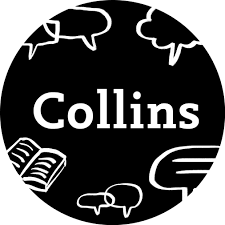Overview
Collins Dictionary is an online language resource that helps people understand and explore the English language. It offers a regularly updated dictionary with over 4.5 billion words to keep track of language changes. The site includes the Collins English Dictionary, the popular COBUILD Advanced Learner's Dictionary, a thesaurus, and large bilingual dictionaries in several languages like Spanish, French, German, and Chinese. It also has a helpful grammar section. It's great for anyone who loves words, wants to learn English better, or needs quick access to reliable dictionary tools.
Difficulty
12345678910
Easy Medium Very Hard
The description is based on detailed and specific information from the official Collins Dictionary overview which lists their main offerings and the types of dictionaries and tools available on their website, presented in simple terms suitable for general consumers.
How to Get a Collins Dictionary Refund: Step by Step
If you purchased through Apple:
- Open a web browser and go to reportaproblem.apple.com.
- Sign in with the Apple ID that was used to purchase the Collins Dictionary subscription.
- Click or tap "I'd like to," then choose "Request a refund."
- Select the reason for the refund request from the dropdown menu and click Next.
- Choose the Collins Dictionary app subscription or charge from the list of purchases and click Submit.
- Wait 24 to 48 hours for an update on your refund request.
- Check the status of your refund request on the same website after submission.
If you purchased through Google Play:
- Open the Google Play Store app on your Android device or visit the Google Play website.
- Sign in with the Google Account used to purchase the Collins Dictionary subscription.
- Go to Payments & Subscriptions > Budget & Order History.
- Find the Collins Dictionary subscription purchase and select it.
- Click or tap Request a refund or Report a problem.
- Choose the reason for the refund request, emphasizing angles like "subscription renewed without notice" or "account was unused."
- Submit the request and wait for Google Play’s email response regarding your refund status.

Tips and Tricks for Getting a Collins Dictionary Refund
- Be polite and calm in all communications with Collins Dictionary support.
- Clearly state your issue and why the product or service was unsatisfactory.
- Request the refund promptly after purchase or issue recognition to increase chances of success.
- Use specific, respectful language such as "I would appreciate a full refund" or "Please consider refunding my purchase".
- Document all communications including emails, chats, and receipts for reference.
- If initially denied, politely escalate your request by asking to speak to a supervisor or higher-level support.
- Use official refund request platforms if purchased via Apple or Google Play (e.g., reportaproblem.apple.com or Google Play Store refund options).
- Time your communications during normal business hours, avoiding weekends and holidays to ensure faster response.
- Research forums such as Reddit for others' experiences and mention them to show you are informed.
- Politely mention consumer protection rights if applicable.
- If purchased through a third-party app or merchant, request a refund through that channel since Collins often directs refunds there.
- After private attempts fail, consider making public posts on social media or forums to nudge the company for a resolution.
- Use a professional refund request script emphasizing confusion or dissatisfaction and kindly ask for a refund promptly.
- Consider using a chargeback service that can manage subscriptions, detect charges, and help initiate refunds on your behalf if all else fails.
Why Do People Request Refunds from Collins Dictionary
- Unsatisfactory product quality: Users may find the dictionary content or format not meeting their expectations.
- Technical issues: Difficulties in accessing online content or using digital dictionary features may prompt refund requests.
- Billing errors: Overcharges or incorrect billing can lead to users demanding refunds.
- Accidental purchase: Customers might request refunds if they buy a subscription or product unintentionally.
- Change of mind: Users might simply decide they no longer want the product shortly after purchase.
- Course cancellations: For educational products related to language learning, refund requests arise if courses are cancelled.
- Misleading product description: If the product features do not match what was advertised, customers may want their money back.
Collins Dictionary Refund Script
Script

Copy
Dear Collins Dictionary Support,
I am writing to address a billing issue I encountered recently. It appears that I have been accidentally charged for a service that I did not intend to purchase. I have always valued your resources, but this charge has caused some confusion and dissatisfaction on my end.
I kindly request a refund for this charge at your earliest convenience. Thank you for your attention to this matter, and I look forward to your prompt response.
Best regards,
Collins Dictionary Refund Policy
I was unable to find the specific refund policy for Collins Dictionary on their website or through my searches. You might consider contacting their customer service for detailed information.
The Easiest Way to Get a Collins Dictionary Refund
If you’re frustrated trying to get a refund from Collins Dictionary—or if you didn’t even realize you were being charged—Chargeback can help. Chargeback is a personal subscription manager that automatically detects hidden, recurring charges like Netflix, Hulu, and hundreds of others. With one click, we can cancel unwanted subscriptions, flag suspicious billing, and even initiate refund requests on your behalf. No more waiting on hold or navigating confusing help pages. Just connect your bank or card account, and we’ll take care of the rest.
Start reclaiming your money today with Chargeback

Editorial Note: These articles reflect the opinions of Chargeback's writers. Everyone's situation is unique; therefore, it is important to conduct your own research and note that our self-help tools are not guaranteed to help with any specific problem.
















.svg)
.png)


